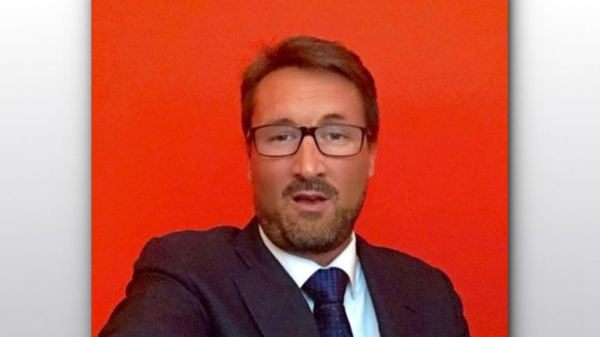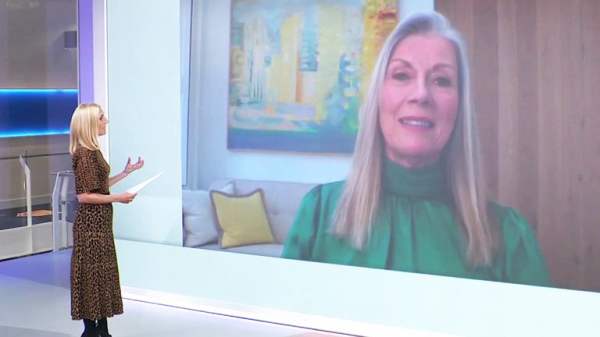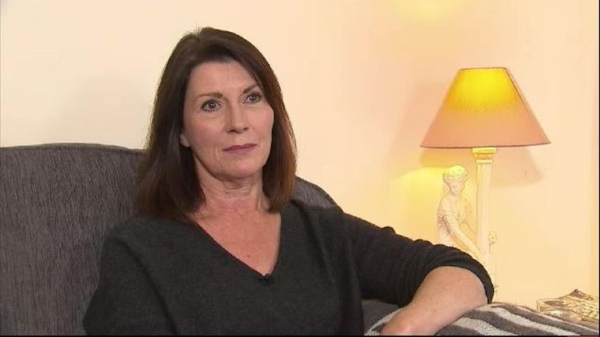Victim of serial fraudster Mark Acklom demands £750k back from bank he used

A woman left penniless by notorious conman Mark Acklom is demanding her stolen money back from the High Street bank he used to fleece her.
During the police investigation, detectives arrested a Barclays bank employee and a former staff member on suspicion of a conspiracy. They had worked in the same department at Barclays.
The two – a man and a woman – were questioned and released on bail for many weeks, though they were later freed without charge.
Carolyn Woods was duped in a romance scam by serial fraudster Acklom, who wooed her and promised to marry her, telling her he was a wealthy Swiss banker called Mark Conway and a secret MI6 agent.
He was jailed four years ago and is now free, but she’s not got back any of the £750,000 she lost.

Ms Woods said: “I put my faith in the criminal justice system, but it has failed me. It just works in favour of the criminal and really doesn’t give much consideration to the victim at all.
“Acklom’s out now, no doubt living well and up to his old tricks and I’m struggling to survive. I should have explored what happened at the bank at the time, but the police advised me not to. They said it was all in their system.”
Acklom isolated Ms Woods from family and friends, then advised her to set up a new bank account with Barclays.
Citing a cash flow problem, he encouraged her to transfer money she thought were loans for building work on a plush home he had bought them.
Within a couple of months in 2012, under Acklom’s coercive control, she transferred all the money in big, sometimes daily, payments of up to £30,000 into the personal account of one of Acklom’s associates.
‘A haemorrhage of money’
Ms Woods believes the bank owed her a duty of care and should have questioned her actions and investigated the payments.
She said: “Looking back now over my bank statements, there was a total haemorrhage of money out of my account, hundreds of thousands of pounds in a matter of a few weeks, all going into one particular account.
“You would think some red flag should have been raised somewhere, I would have expected the bank to contact me.
“If they had shown some interest in me as a client, then perhaps this might not have happened. I mean, I do take responsibility myself, for part of it.”

“But I think one of the very good things that’s happened since I highlighted this sort of coercive control and wrote about it is that people are much, much more aware,” she continued.
“I was very much regarded as just a silly woman at the time. I think things have moved on a lot since then and there’s a lot more understanding about that.”
Soon after she had stopped making transfers, Ms Woods discovered some payments had been made without her authorisation.
When she queried them, she said the bank told her it couldn’t explain the missing funds but the money was paid back into her account. Barclays then closed her account and wouldn’t say why.
Broke, homeless and suicidal
It was a year before Ms Woods realised she had been lied to and defrauded by Acklom, leaving her broke, homeless and suicidal.
She discovered Acklom’s long history of fraud and was told that far from being a rich bachelor flying in to see her from Switzerland, he had been living nearby with his wife and two young daughters. By that time Acklom had fled abroad.
After a slow and shoddy start to an investigation, for which they later apologised, Avon and Somerset police arrested the former Barclays employee into whose account Acklom had insisted the money be paid.
He told police that he, too, had been under Acklom’s coercive control, had acted under threat and later became a potential prosecution witness.

The man told me recently: “This is a part of my life I never want to revisit, never want to talk about, never ever want to go back to. Because it was a living hell and a living nightmare for me.
“I’ve worked so hard to rebuild my mental state. I was in such a manipulative position where I could not move, could not see, could not eat, could not drink, could not do a damn thing, unless I was authorised.”
Detectives also arrested a woman who was still working for the bank and whose account had held some of the money at some stage.
When Sky News called at her home this week to try to ask her about her alleged involvement, a young man threatened to call the police. The woman appears to have since deleted her LinkedIn business profile.
During the police investigation both suspects were questioned and bailed, but later released without charge.
In a letter to Barclays Ms Woods, 62, wrote: “I realise that banking safeguards have improved since 2012/13, but some recent events have led me to believe that I wasted my time going after Mark Acklom and his accomplices through the so-called criminal justice system, and that Barclays Bank should have been held equally accountable for my losses – something I thought would follow on naturally once the case came to trial.
“There is absolutely no doubt that this crime was enabled with the help of a bank ‘insider’.”

‘There’s a strong moral argument for Barclays to pay up’
Lawyer Arun Chauhan, who sits on the Fraud Advisory Panel, a charitable body which advises the public on dealing with fraud, said Barclays had no legal obligation to refund Ms Woods anything, but there was a strong moral argument to do so.
He said: “I think Barclays need to look at it and say, ‘well if we, for example, find that our employees were involved to quite a degree and they used their internal information knowledge about how we operate to facilitate and assist the fraud,’ I think they need to stand back and ask themselves ‘should we bear any responsibility morally for this?’
“And that might well lead to them saying they should offer a goodwill payment, but they won’t make any admission of liability.
“If the events of the story took place today, I think the landscape would be very different. The banks are very conscious about coercive control, romance fraud, situations where people are being manipulated into making transactions, not just being tricked with false account details, but being manipulated.
“There are guidance standards about customer vulnerability, looking out for vulnerable customers. I think there would have been a much greater prospect of a recovery (of the stolen money) if those events happened today. And that’s really unfortunate.”
Barclays has told Ms Woods it was investigating her claim. A spokesman told Sky News: “For confidentiality reasons we cannot comment on individual customer affairs.”

Mark Acklom, now aged 50, was jailed for five years and eight months in 2019 after pleading guilty to five of the 20 fraud charges he faced, effectively admitting he stole around £300,000 from Ms Woods.
The judge who sentenced him told Ms Woods it was “pretty unlikely” she would get any money back from Acklom.
He was freed after serving little more than two years and should have spent many more months living under licence in the UK with restrictions on his freedom and regular contact with probation officers.
But almost immediately the fraudster was extradited to Spain to complete a prison sentence he had fled from there.
The extradition judge said his UK licence period could be served concurrently with his Spanish sentence.
In agreeing to be extradited, Acklom also avoided the rare imposition of a five-year serious crime prevention order, which would have placed severe restrictions on his freedom.
The extradition judge told him there was no expectation of him returning to Britain.
Acklom was freed in Spain in May, earlier than expected. His whereabouts are unknown.
